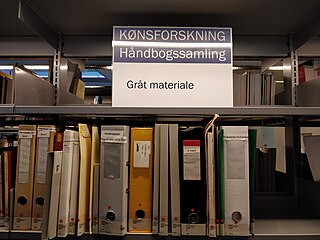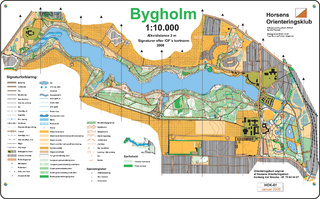
British Standards (BS) are the standards produced by the BSI Group which is incorporated under a royal charter and which is formally designated as the national standards body (NSB) for the UK. The BSI Group produces British Standards under the authority of the charter, which lays down as one of the BSI's objectives to:
Set up standards of quality for goods and services, and prepare and promote the general adoption of British Standards and schedules in connection therewith and from time to time to revise, alter and amend such standards and schedules as experience and circumstances require.

The International Organization for Standardization is an independent, non-governmental, international standard development organization composed of representatives from the national standards organizations of member countries. Membership requirements are given in Article 3 of the ISO Statutes.

Electrostatic discharge (ESD) is a sudden and momentary flow of electric current between two differently-charged objects when brought close together or when the dielectric between them breaks down, often creating a visible spark associated with the static electricity between the objects.
The ISO 9000 family is a set of five quality management systems (QMS) standards by the International Organization for Standardization (ISO) which help organizations ensure that they meet customer and other stakeholder needs within the statutory and regulatory requirements related to a product or service. The ISO refers to the set of standards as a "family", bringing together the standard for quality management systems and a set of "supporting standards", and their presentation as a family facilitates their integrated application within an organisation. ISO 9000 deals with the fundamentals and vocabulary of QMS, including the seven quality management principles that underlie the family of standards. ISO 9001 deals with the requirements that organizations wishing to meet the standard must fulfill. A companion document, ISO/TS 9002, provides guidelines for the application of ISO 9001. ISO 9004 gives guidance on achieving sustained organizational success.
The Organization for the Advancement of Structured Information Standards is a nonprofit consortium that works on the development, convergence, and adoption of projects - both open standards and open source - for Computer security, blockchain, Internet of things (IoT), emergency management, cloud computing, legal data exchange, energy, content technologies, and other areas.
Six Sigma (6σ) is a set of techniques and tools for process improvement. It was introduced by American engineer Bill Smith while working at Motorola in 1986.
An open standard is a standard that is openly accessible and usable by anyone. It is also a common prerequisite that open standards use an open license that provides for extensibility. Typically, anybody can participate in their development due to their inherently open nature. There is no single definition, and interpretations vary with usage. Examples of open standards include the GSM, 4G, and 5G standards that allow most modern mobile phones to work world-wide.
An open file format is a file format for storing digital data, defined by an openly published specification usually maintained by a standards organization, and which can be used and implemented by anyone. An open file format is licensed with an open license. For example, an open format can be implemented by both proprietary and free and open-source software, using the typical software licenses used by each. In contrast to open file formats, closed file formats are considered trade secrets.
Quality assurance (QA) is the term used in both manufacturing and service industries to describe the systematic efforts taken to assure that the product(s) delivered to customer(s) meet with the contractual and other agreed upon performance, design, reliability, and maintainability expectations of that customer. The core purpose of Quality Assurance is to prevent mistakes and defects in the development and production of both manufactured products, such as automobiles and shoes, and delivered services, such as automotive repair and athletic shoe design. Assuring quality and therefore avoiding problems and delays when delivering products or services to customers is what ISO 9000 defines as that "part of quality management focused on providing confidence that quality requirements will be fulfilled". This defect prevention aspect of quality assurance differs from the defect detection aspect of quality control and has been referred to as a shift left since it focuses on quality efforts earlier in product development and production and on avoiding defects in the first place rather than correcting them after the fact.
Education in England is overseen by the Department for Education. Local government authorities are responsible for implementing policy for public education and state-funded schools at a local level. State-funded schools may be selective grammar schools or non-selective comprehensive schools. All state schools are subject to assessment and inspection by the government department Ofsted. England also has private schools and home education; legally, parents may choose to educate their children by any suitable means.

A digital object identifier (DOI) is a persistent identifier or handle used to uniquely identify various objects, standardized by the International Organization for Standardization (ISO). DOIs are an implementation of the Handle System; they also fit within the URI system. They are widely used to identify academic, professional, and government information, such as journal articles, research reports, data sets, and official publications.
A standards organization, standards body, standards developing organization (SDO), or standards setting organization (SSO) is an organization whose primary function is developing, coordinating, promulgating, revising, amending, reissuing, interpreting, or otherwise contributing to the usefulness of technical standards to those who employ them. Such an organization works to create uniformity across producers, consumers, government agencies, and other relevant parties regarding terminology, product specifications, protocols, and more. Its goals could include ensuring that Company A's external hard drive works on Company B's computer, an individual's blood pressure measures the same with Company C's sphygmomanometer as it does with Company D's, or that all shirts that should not be ironed have the same icon on the label.
Reasonable and non-discriminatory (RAND) terms, also known as fair, reasonable, and non-discriminatory (FRAND) terms, denote a voluntary licensing commitment that standards organizations often request from the owner of an intellectual property right that is, or may become, essential to practice a technical standard. Put differently, a F/RAND commitment is a voluntary agreement between the standard-setting organization and the holder of standard-essential patents. U.S. courts, as well as courts in other jurisdictions, have found that, in appropriate circumstances, the implementer of a standard—that is, a firm or entity that uses a standard to render a service or manufacture a product—is an intended third-party beneficiary of the FRAND agreement, and, as such, is entitled to certain rights conferred by that agreement.
Royalty-free (RF) material subject to copyright or other intellectual property rights may be used without the need to pay royalties or license fees for each use, per each copy or volume sold or some time period of use or sales.

Grey literature is materials and research produced by organizations outside of the traditional commercial or academic publishing and distribution channels. Common grey literature publication types include reports, working papers, government documents, white papers and evaluations. Organizations that produce grey literature include government departments and agencies, civil society or non-governmental organizations, academic centres and departments, and private companies and consultants.
A specification often refers to a set of documented requirements to be satisfied by a material, design, product, or service. A specification is often a type of technical standard.

An orienteering map is a map specially prepared for use in orienteering events. It is a large-scale topographic map with extra markings to help the participant navigate through the course.

Unix is a family of multitasking, multi-user computer operating systems that derive from the original AT&T Unix, whose development started in 1969 at the Bell Labs research center by Ken Thompson, Dennis Ritchie, and others. Initially intended for use inside the Bell System, AT&T licensed Unix to outside parties in the late 1970s, leading to a variety of both academic and commercial Unix variants from vendors including University of California, Berkeley (BSD), Microsoft (Xenix), Sun Microsystems (SunOS/Solaris), HP/HPE (HP-UX), and IBM (AIX).

Fair trade coffee is coffee that is certified as having been produced to fair trade standards by fair trade organizations, which create trading partnerships that are based on dialogue, transparency and respect, with the goal of achieving greater equity in international trade. These partnerships contribute to sustainable development by offering better trading conditions to coffee bean farmers. Fair trade organizations support producers and sustainable environmental farming practices and prohibit child labor or forced labor.

Open source is source code that is made freely available for possible modification and redistribution. Products include permission to use and view the source code, design documents, or content of the product. The open source model is a decentralized software development model that encourages open collaboration. A main principle of open source software development is peer production, with products such as source code, blueprints, and documentation freely available to the public. The open source movement in software began as a response to the limitations of proprietary code. The model is used for projects such as in open source appropriate technology, and open source drug discovery.








